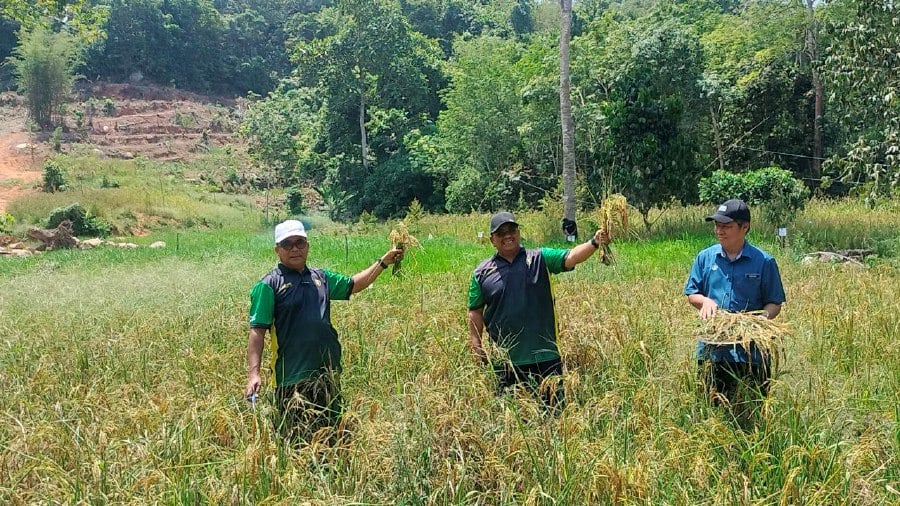SIK: Kedah Menteri Besar Datuk Seri Muhammad Sanusi Md Nor has proposed that Kedahans consider cultivating hill padi (padi huma) as an alternative to boost the local white rice supply instead of relying on tapioca.
He said hill padi is more satiating compared to tapioca-based meals, as suggested recently by Dewan Rakyat Speaker Tan Sri Johari Abdul.
"Rather than planting tapioca, it's preferable to grow hill padi. Tapioca can lead to bloating and stomach discomfort... hill padi rice is tasty and quickly fills you up," he said during a press conference after a site visit to a hill padi plantation project in Kampung Radik here today.
Also present was Kedah Tithe Board (LZNK) chief executive officer Datuk Zakaria Othman.
Johari was reported urging Malaysians to make changes by not solely relying on white rice as their primary source of carbohydrates.
He proposed tapioca as a temporary substitute while waiting for current local white rice supply issues to be addressed.
Sanusi said the state government is aiming to make Sik district as a centre for hill padi cultivation, complementing the existing padi fields in the state.
"In addition to revitalising abandoned padi fields to enhance food security in Kedah, LZNK is exploring hill padi cultivation as another viable option.
"We are focusing not only on rice in the Muda Agricultural Development Authority (Mada) areas, but outside Mada, we are also focusing on land-based rice (hill padi)," he added.
Sanusi said that the hill padi project involves six seed varieties under trial since last December.
"This includes varieties like Tangkai Langsat, Jarum Galah, Tok Ya, Bario, Padi Perang, and Padi Hitam, with harvesting periods ranging from three to six months," he added.
Sanusi also said there is strong demand for hill padi due to its taste and aroma.
"The demand is extraordinary, people buy it even though it's expensive... I was told the market price in Kuala Lumpur is RM50 per kilogramme, yet demand is high," he said.
Meanwhile, Zakaria said LZNK would purchase rice yields from the hill padi project participants, with some reserved for the participant's families food needs for six months to a year.
"Participants can process their rice using machines provided by LZNK free of charge," he added.


